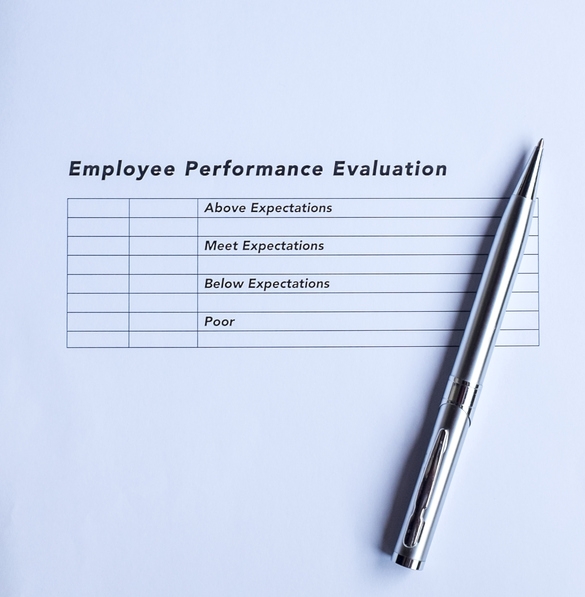You have /5 articles left.
Sign up for a free account or log in.

Istock/sinseeho
Most universities are on a July-June fiscal year cycle. That means that the annual review process for staff (and sometimes faculty) falls at the busiest time of the year: the April 1 to commencement sprint when everyone realizes that the end of the semester is upon us and we try to bend the space-time continuum to squeeze in one more speaker, seminar, research showcase, award presentation or alumni weekend. As a supervisor with what can seem like a million competing demands, it is tempting to give your staff reviews cursory attention and move on -- or skip them entirely if your institution doesn’t enforce the requirement.
In previous columns, I have made the case for holding staff members accountable for performance, and while the annual review is not enough to create a culture of accountability, it is an important tool. On two different occasions, I have inherited teams that haven’t had an annual review in 10 years. That situation is a recipe for insecurity and instability -- even where the team is generally performing well -- and a formula for huge problems when you have one or more poor performers. You can find ways to make the process less fraught and time-consuming if you think about performance management throughout the year.
First, ensure you are doing annual performance planning. It’s much easier to evaluate someone who has set goals and measured progress over the course of the year. Sometimes there are good reasons why goals aren’t met or priorities shift over the course of the year, but the planning and review process, in tandem, gives both supervisor and staff member the opportunity to assess progress against tangible milestones. It can be even easier if you check in on goals on a quarterly basis and ask your staff to document accomplishments as they happen or on a regular (monthly or quarterly) cycle. That gives you the documentation to make the whole process easier and covers the inevitable lapses of memory -- helping you give staff members credit for accomplishments that you might otherwise gloss over.
It also allows you to identify areas for improvement before they become a huge issue. I don’t think there is ever a good reason to surprise employees during the review process with feedback that they haven’t heard in one form or another over the course of the year.
It can be even more important to seek regular feedback from “clients” of your staff members. On one memorable occasion, after supervising an employee for a year, the deans who relied on their work product finally told me in response to a formal request that the staff member regularly over-promised and under-delivered and didn’t provide reliable communication on the status of key projects. That would have been much better to know three months into the fiscal year than after the situation had persisted for month after month. After that experience, I set myself regular reminders to check in with key partners. That gives you the opportunity to coach your employee before important stakeholders on the campus have become permanently soured on working with your team.
Next, ask your staff members to do a self-assessment. That gives top performers an opportunity to express what they are most proud of accomplishing and how they want to develop over the next year or more. For staff members who lack confidence, it provides you with insight into their point of view and helps you target areas where you can offer positive feedback and encourage them to develop. For individuals who aren’t performing well, it helps you to assess how aware they are of the discrepancy between expectations and performance and to frame your feedback. It can also highlight areas where potential annual review drama might occur, allowing you to prepare for difficult conversations.
I am not a fan of giving a written review to the staff member in the meeting and asking them to react immediately. Providing them with a copy before you talk together allows them to temper initial reactions to negative feedback, formulate questions and think about how the conversation should go. Having a conversation that exactly mirrors the written review isn’t useful -- in that case, you have no reason for a meeting.
Instead, prepare by writing down key points and framing your feedback in the larger context of your unit’s goals or university strategy. When you have to give critical negative feedback, that allows you to script how you would like the conversation to go, provide some distance from emotional content so you can handle it with equanimity and remind yourself of how you plan to handle the meeting if an individual doesn’t take feedback well.
Keep your feedback factual. If you are commenting on problematic behaviors, make sure you have examples and a clear statement of what behavior you want to see instead. This is where documentation of previous performance problems can be essential. Ask the staff member what ideas they have to improve patterns or outcomes. Remember that annual reviews involve a power dynamic and can be very high stress for some individuals, so give yourself enough time and space to have a real discussion and for individuals to offer their thoughts.
Offer a follow-up conversation if they’re having difficulty taking in feedback. I have followed up with an email with a few bullets (four or less) on topics I am asking them to consider or outcomes and behaviors that need to be achieved. That gives staff members the space to formulate their thoughts and have some say in how problems are solved -- an important part of cultivating both accountability and encouraging employees to care about their jobs and the university.
Frame your feedback, individual and team goals, and desired behaviors in terms of mission. Most people who work in higher education are here because they care about students, research or another part of the university’s mission. Explaining how the pieces of their work and their team fit together, and the role they play in achieving key goals, is a great way to get buy-in (or determine if the person doesn’t understand why their performance matters).
If you have tips for better annual reviews or thoughts on performance management, please share them in the Comments section below.




